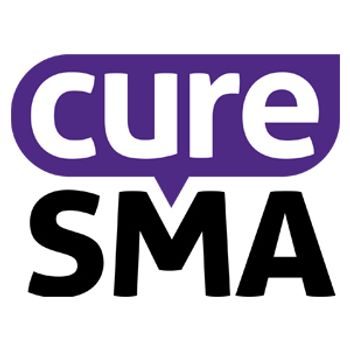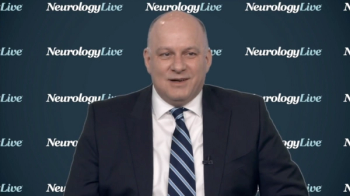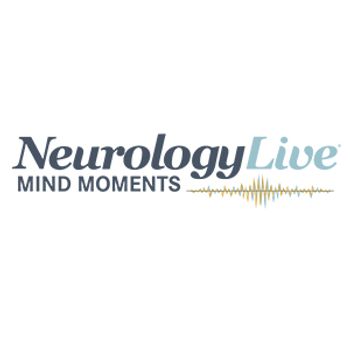
The neurologist at the Barrow Neurological Institute discussed her experience with telemedicine and gave advice on how to conduct examinations through audio/video platforms.

The neurologist at the Barrow Neurological Institute discussed her experience with telemedicine and gave advice on how to conduct examinations through audio/video platforms.

The initial report of the US Expanded Access Program for fenfluramine indicates that those with Dravet syndrome treated with fenfluramine (Fintepla; Zogenix) have clinically meaningful responses similar to that observed in clinical trials.

Data confirmed the prior results of the PROMISE-1 and PROMISE-2 studies, indicating the preventive effect on migraine with eptinezumab begins as early as day 1 post-infusion.

The drug's impact on neuroinflammation and neurodegeneration in the brain and spinal cord are currently being explored.

The professor of neurology at the University of Vermont Larner College of Medicine detailed what lessons and highlights he’s learned from shifting his migraine care to a telemedicine-based model during the COVID-19 pandemic.

Five-year EXPAND study data suggest that Novartis’s S1P receptor modulator has sustained benefit and delays disability over long-term treatment in patients with SPMS.

The director of the Sleep Disorders Research Program at Cleveland Clinic Lerner College of Medicine offered her insight on how telemedicine is being utilized to help diagnose and treat sleep disorders amidst COVID-19.

The Novartis agent showed significant reduction of migraine days in both the real-world TELESCOPE and PERISCOPE studies in patients with migraine.

The professor of neurology at the University of Vermont Larner College of Medicine discussed the response from payers and physicians to the special article he and colleagues published in the journal Headache.

Researchers found multiple measure correlations between perampanel use and reductions in Insomnia Severity Index scores in those who had comorbid epilepsy and anxiety.

The Group Medical Director of Neuroscience at Genentech discussed the shorter, 2-hour infusion time for ocrelizumab and how it might impact multiple sclerosis care as a whole.

The Idorsia drug candidate demonstrated minimal serious treatment-emergent adverse events, with no rebound insomnia or withdrawal symptoms upon discontinuation.

Alnylam Pharmaceuticals recently completed enrollment in the phase 3 HELIOS-A clinical trial of the drug.

The chief medical advisor for the Muscular Dystrophy Association discussed the switch to virtual conferences and shared his insight on how the neuromuscular community can move forward amid COVID-19.

Observations from more than 1000 cases of stroke suggest that enhanced paramedic assessment should not be used to increase thrombolysis volume but may influence the quality of treatment decisions.

Exclusive breastfeeding may be recommended after it was shown to reduce the risk of postpartum relapses.

Through the new COVID-19 Assistance Program, households who have an individual with spinal muscular atrophy may be entitled to a $50 gift card to assist in costs of purchasing essential items.

The professor at the University of Pittsburgh was awarded a $190,000 grant for mouse model research that specifically targets neuromuscular weakness in spinal muscular atrophy.

The FDA has accepted an sBLA for a version of Genentech's ocrelizumab with a shorter administration time for the treatment of relapsing and primary progressive MS.

The director of the Sleep Disorders Center and vice-chair of the department of neurology at UCLA David Geffen School of Medicine detailed the greatest need in the management of narcolepsy

Retrospectively analysis data suggest that while the majority of epileptics have no significant worsening in bone mineral density, they maintain an amplified risk of suffering major osteoporotic fractures.

Cumulative mean systolic blood pressure was associated with those faster declines in memory which were significantly more common in black individuals than white individuals.

Neurology News Network for the week ending April 18, 2020.

Take 5 minutes to catch up on NeurologyLive's highlights from the week ending April 17, 2020.

Data out to 11 years suggest that individualized doses of brivaracetam (Briviact; UCB Pharma) are safe and effective in reducing focal and primary generalized seizures.

"Mind Moments," a podcast from NeurologyLive, brings you an exclusive interview with Fernando Pagan, MD.

The professor of neurology at the University of Vermont Larner College of Medicine and founding president of the Alliance for Headache Disorders Advocacy discussed the special article he and colleagues published in the Headache journal on migraine care.

Stroke care, including acute treatment and prevention, faces unique challenges in rural areas where disease awareness is lacking and access to high-level care in scarce.

Consumption of whole fruits, vegetables, whole grains, nuts, legumes, fish and olive oil, as well as reduced consumption of red meat and alcohol was observed to assist in preserving cognitive function.

In those with secondary progressive MS, evaluating diffusely abnormal white matter may provide a useful measure for therapies aiming to protect at-risk tissue, which may be able to slow progression.